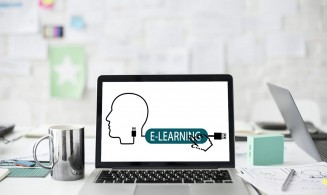

Literacy and Basic Skills
The mandate of the UNESCO Institute for Lifelong Learning (UIL) is to promote lifelong learning with a focus on adult and continuing education, literacy and non-formal basic education. In addition, UIL is contributing to UNESCO’s priority focus on literacy by strengthening national capacities to scale up quality, inclusive and gender-sensitive literacy programmes.
UIL’s main activities in Literacy and Basic Skills
UIL’s Literacy and Basic Skills activities focus on gender equality, Africa and youth:
- Promoting holistic, integrated, sector-wide and cross-sectoral approaches to literacy through advocacy, networking and partnership activities
- Facilitating policy dialogue with relevant actors in Member States and assisting them to integrate literacy and basic skills into national education policies and development strategies in order to support peace, social cohesion and sustainable development
- Conducting action-oriented and policy-driven research and disseminating the results in order to improve the quality and relevance of literacy policies and programmes. UIL focuses in particular on action research that addresses the following issues:
- Assessing learning outcomes in literacy programmes
- Developing empowering approaches that promote inclusion and gender equality
- Reaching vulnerable youth
- Promoting diversity through multilingual and multicultural approaches
- Achieving relevance through integrated and intergenerational approaches
- Ensuring quality through professional development, enhanced curricula and materials, and enriched literate environments that incorporate information and communications technologies (ICTs)
- Making available evidence-based knowledge and examples of innovative literacy and numeracy policies and programmes through the Effective Literacy and Numeracy Practices Database (LitBase)
- Developing the capacities of literacy stakeholders in order to improve policies, programme design, management, monitoring and evaluation. Strengthened capacities in Member States will be used to:
- Integrate youth and adult literacy and basic education into national recognition, validation and accreditation frameworks and/or mechanisms
- Apply strategies and tools that provide access and promote the successful completion of basic (skills) education, particularly for disadvantaged young people and adults




















